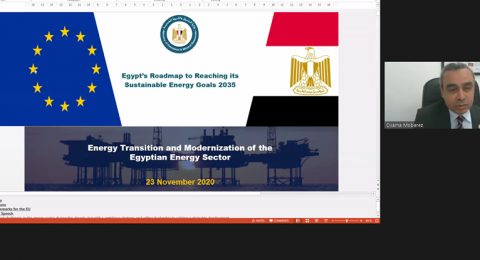Oil dropped to a three-week low after two European Union officials said an embargo on Iranian crude imports may be postponed for six months.
Crude fell 0.4 percent as officials said that the ban would be delayed to allow nations to find new supply. International Atomic Energy Agency inspectors will go to Tehran to discuss Iran’s nuclear program, two diplomats said. Futures also declined after French Finance Minister Francois Baroin said Standard & Poor’s is stripping France of its AAA credit rating.
“We’re still digesting the Iran news,” said Chris Dillman, an analyst and broker at Tradition Energy in Stamford, Connecticut. “Prices dropped on the news that the EU had pushed back the embargo and may fall further when we get more information about the inspectors’ visit. Anything that reduces tension with Iran sends prices lower.”
Crude oil for February delivery fell 40 cents to $98.70 a barrel on the New York Mercantile Exchange, the lowest settlement since Dec. 21. Oil dropped 2.8 percent this week and is up 8 percent from a year earlier.
Brent oil for February settlement declined 82 cents, or 0.7 percent, to end the session at $110.44 a barrel on the London- based ICE Futures Europe exchange. The February contract expires Jan. 16. March futures dropped 70 cents, or 0.6 percent, to $110.35 a barrel.
There will be no floor trading in New York on Jan. 16 because of the Martin Luther King Jr. holiday.
“The weekly move has been relatively weak when you consider all the news,” said Tim Evans, an energy analyst at Citi Futures Perspective in New York.
Iranian Threat
Iranian Vice President Mohammad Reza Rahimi threatened on Dec. 27 to block the Strait of Hormuz, the transit route for about a fifth of the world’s oil, if the EU bans the country’s oil exports. U.S. Joint Chiefs of Staff Chairman General Martin Dempsey said Jan. 9 that Iran can temporarily choke off the waterway. About 17 million barrels of oil a day passes through the strait, according to the U.S. Energy Department.
“Some of the geopolitical premium has come out of the price during the last two days,” said John Kilduff, a partner at Again Capital LLC, a New York-based hedge fund that focuses on energy. “The announcement that the EU sanctions would be delayed has had a major impact on the market.”
Members of the Organization of Petroleum Exporting Countries including Saudi Arabia would be able to make up for a drop in Iranian supplies to Europe, former OPEC President Chakib Khelil said today on Bloomberg Television’s “On the Move.”
Nuclear Program
Rising tension between Iran and the West over the country’s nuclear development has spurred price increases in the past year. The U.S. and its European allies suspect Iran of using the program to create atomic weapons. The government in Tehran says the technology is for domestic power generation.
The Vienna-based IAEA, the United Nations’ nuclear watchdog, agreed to the meeting with Iranian government representatives to be held at the end of January, the diplomats said today on condition of anonymity because the negotiations are continuing.
The euro tumbled, sending commodities lower, after Baroin said France’s rating will be cut to AA+. The euro slipped as much as 1.5 percent to $1.2624, the lowest level since Aug. 25, 2010. A weaker common currency and stronger dollar decrease the appeal of raw materials to investors.
“This is not good news, we would have preferred to keep it,” Baroin said on France 2 Television. “It’s a reduction of one level, it’s the same level as the U.S. It’s not a catastrophe.”
Credit Ratings
Italy’s credit rating was cut two levels, to BBB+ from A, by S&P, said an EU official who declined to be identified because the decision is not yet public.
Germany, Europe’s biggest economy, will retain its AAA rating in the review of euro-area countries’ credit grades, a European government official said.
The Institute of International Finance, the group representing Greece’s bank creditors, said talks with the government have “paused for reflection” after the discussions failed to produce a “constructive consolidated response by all parties.” The sovereign debt crisis began in Greece and then moved to Ireland, Portugal, Italy and Spain.
“Expectations that the French downgrade is finally coming are a reminder that the European debt crisis is far from resolution,” Kilduff said.
Oil gained as much as 1.1 percent earlier after Nigerian labor unions said they will continue a strike that threatens oil exports from Africa’s top producing country. The main oil workers’ union, Pengassan, said it will meet tomorrow to decide whether to proceed with plans to start shutting fields Jan. 15.
Oil volume in electronic trading on the Nymex was 658,039 contracts as of 5:04 p.m. in New York. Volume totaled 774,439 yesterday, the highest since Dec. 13 and 29 percent above the three-month average. Open interest was 1.38 million contracts.
Source: Bloomberg










